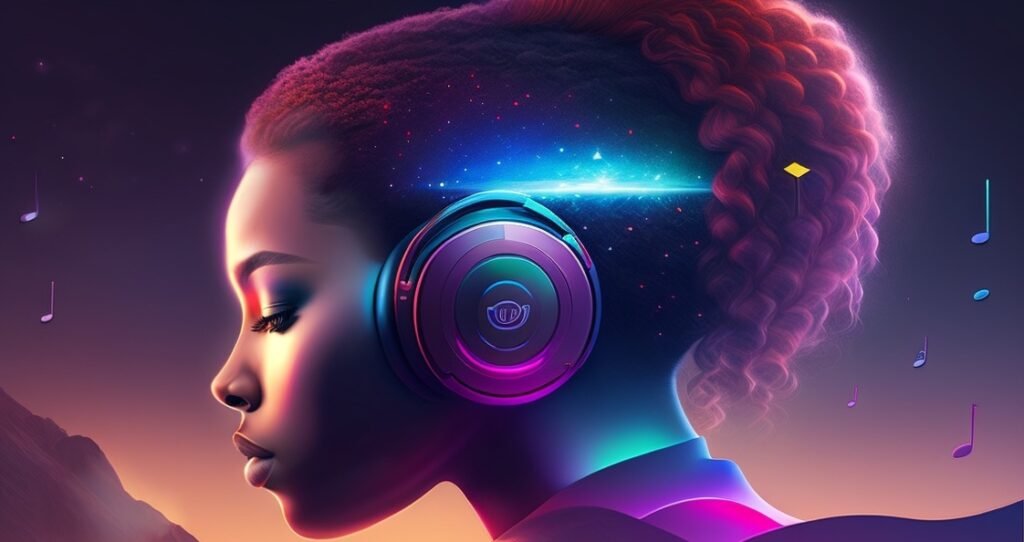“I feel like we’re in the end of art, human art,” said musician Grimes on a podcast in 2021. Her comment sparked a heated debate among artists and fans: Is artificial intelligence (AI) helping or hindering musical creativity?
AI music is not a new phenomenon. Since the 1950s, computer scientists and musicians have experimented with algorithms and software that can generate, analyze, and manipulate musical sounds and structures. However, in recent years, AI music has become more sophisticated and accessible, thanks to the availability of large datasets, powerful computing resources, and user-friendly tools. Some of the current applications of AI in music include composing new songs, creating virtual pop stars, enhancing musical performance, and personalizing music recommendations. However, AI music also raises some ethical, legal, and artistic issues, such as plagiarism, ownership, authenticity, and originality.
In this article, we will explore the main arguments for and against AI in music, using examples and evidence from various sources. We will also invite you to reflect on your own views and experiences with AI music.
How AI is helping musicians unlock their creativity
One of the positive aspects of AI in music is that it can enable musicians to explore new sounds, styles, and genres that would otherwise be impossible or difficult to achieve. AI can also enhance musical creativity by providing inspiration, feedback, and collaboration.
For example, Magenta, a project by Google that uses TensorFlow, an open-source machine learning platform, allows musicians to generate new music by scanning existing models. It explores AI and machine learning in the creative process of making melodies. Magenta also offers tools for musicians to interact with AI models in real-time, such as Piano Genie, which lets anyone improvise on a piano using just eight buttons.
Another example is AIVA, an AI composer that uses deep learning algorithms to create original soundtrack music and scores. AIVA is designed to help mainstream users who need a steady supply of music but don’t have an endless budget for royalties. AIVA can also learn from human composers and adapt to their preferences and styles.
AI can also help musicians collaborate with each other across distances and disciplines. For instance, Endel, an app that creates personalized soundscapes based on user’s mood, location, and time of day, recently partnered with Grimes to produce an album called AI Lullaby. The album combines Endel’s algorithmic sounds with Grimes’ vocals and lyrics to create soothing songs for babies and parents.
AI can also democratize music production and consumption by making it easier and cheaper for anyone to create and access music. For example, Amper, an online tool that helps non-musicians make royalty-free music using their own parameters in a few seconds. Amper can also collaborate with human musicians to co-create music for various purposes, such as videos, podcasts, or games.
Another example is Spotify, a popular streaming service that uses AI to analyze user’s listening habits and preferences and provide personalized recommendations and playlists. Spotify also uses AI to optimize its audio quality and compression algorithms to deliver high-quality music with minimal bandwidth.
How AI is threatening musical creativity
One of the negative aspects of AI in music is that it can undermine musical creativity by replacing human input, generating generic or derivative works, or manipulating listeners’ emotions and preferences. AI can also pose some risks and harms to musical identity, culture, and agency.
For example, some critics argue that AI-generated music lacks originality and authenticity because it is based on existing data and models that mimic human styles and genres. They claim that AI cannot capture the nuances, emotions, and intentions that make human music unique and meaningful. They also question the ownership and authorship of AI-generated music: Who owns the rights to the music? Who gets the credit for the music? Who is responsible for the music?
Another example is that some artists fear that AI will take over their jobs and audiences by creating more efficient and appealing music than humans. They worry that AI will create a homogenized musical landscape where diversity and innovation are lost. They also challenge the ethical implications of using AI to influence listeners’ behaviour and choices. For instance, some researchers have found that AI can manipulate listeners’ moods, memories, and preferences by altering musical features such as tempo, pitch, or timbre.
AI can also threaten musical identity, culture, and agency by erasing or appropriating the voices and values of marginalized or oppressed groups. For example, some critics have accused AI of reproducing or reinforcing racial, gender, or class stereotypes and biases in music. They argue that AI can exploit or erase the cultural and historical contexts and meanings of musical expressions and practices. They also advocate for the inclusion and empowerment of diverse and underrepresented voices and perspectives in AI music.
Conclusion
AI music is a complex and controversial topic that has no simple or definitive answer. On one hand, AI can be seen as a powerful tool that enhances musical creativity by expanding the possibilities and opportunities for musicians and listeners alike. On the other hand, AI can be seen as a dangerous threat that diminishes musical creativity by reducing the human element and diversity in music. Ultimately, the impact of AI on music depends on how we use it, why we use it, and who we use it for.
What do you think about AI in music? Do you agree or disagree with the arguments presented in this article? Have you ever listened to or created AI-generated music? How did it make you feel?
